Uncover the intriguing factors influencing life expectancy in ancient Egypt, including high infant mortality, gender disparities, social class, and evolving healthcare practices. Learn how modern analyses of skeletal remains and inscriptions reveal insights into their lives and aging.
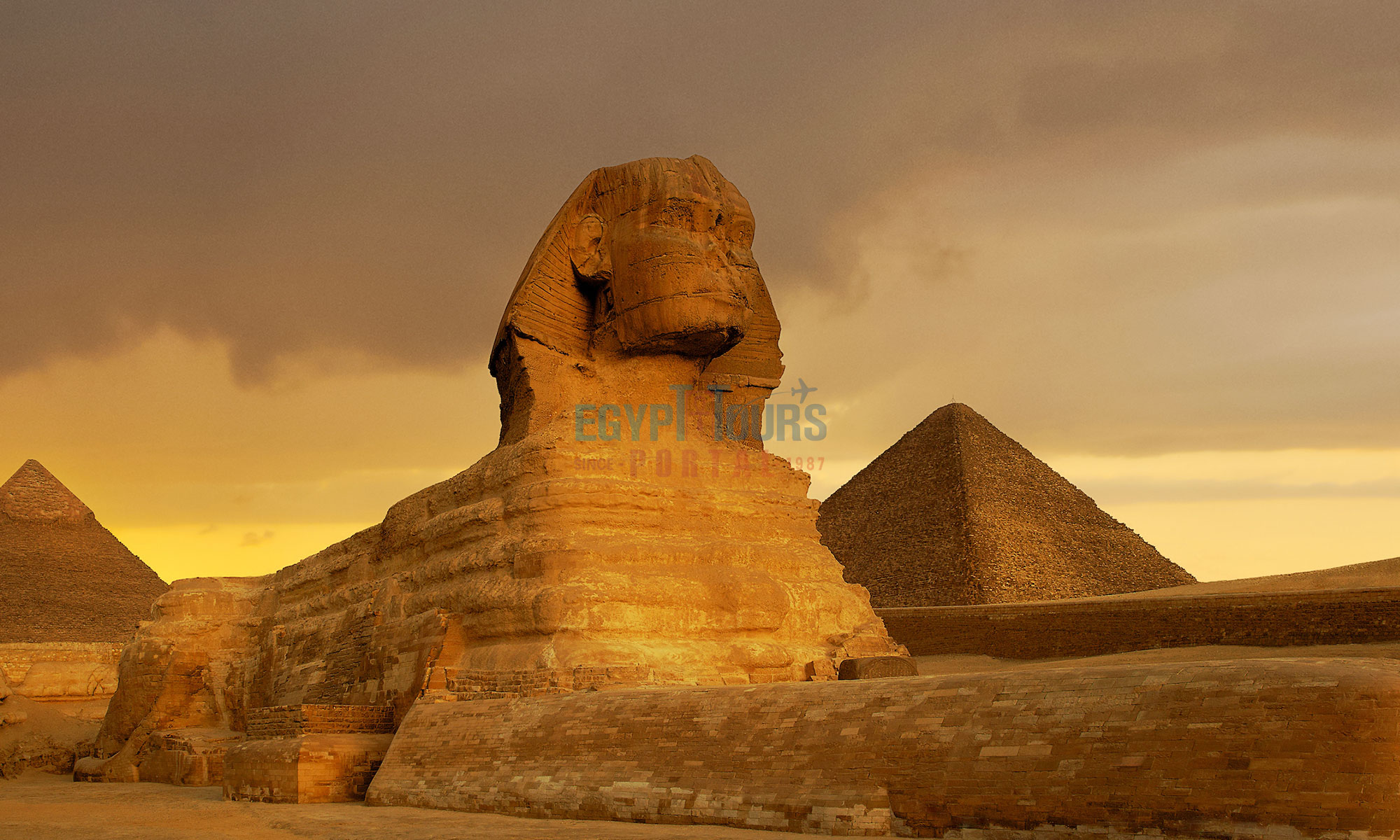
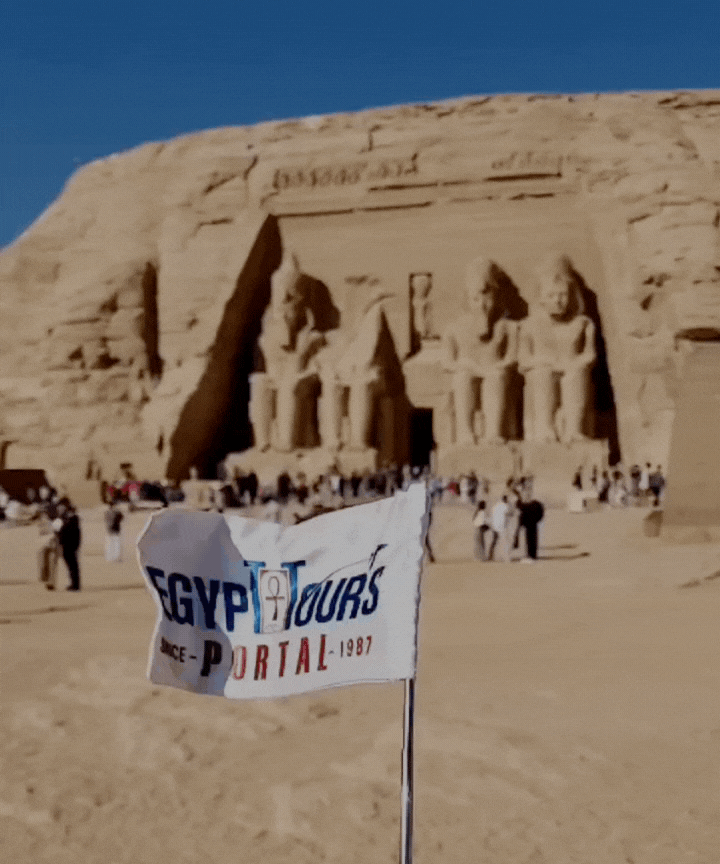
Life expectancy in ancient Egypt offers profound insights into the challenges, resilience, and societal structure of one of the world’s most remarkable civilizations. With an average life expectancy at birth ranging between 19 and 25 years, largely due to high infant mortality rates, survival beyond childhood significantly improved an individual's chances of reaching middle age.
The conditions varied widely across social classes, occupations, and regions. This article delves into the factors shaping life expectancy, the impact of gender and class, and the roles of health and societal norms in ancient Egyptian longevity.

The average life expectancy in ancient Egypt fluctuated significantly based on several factors, including gender, social class, and access to healthcare. At birth, life expectancy was between 19 and 25 years during most periods, influenced by high infant mortality rates.
Surviving early childhood raised the expected lifespan considerably, with many reaching 30-40 years and elites sometimes living into their 50s or 60s. Studies of skeletal remains and mummified bodies have provided much of this data, along with written records from the New Kingdom (c. 1550–1070 BCE) and the Roman Period (c. 30 BCE–300 CE).
Explore more fascinating details about the daily routines, beliefs, and traditions of the Egyptians.
Read More
Infant mortality was a significant factor in lowering average life expectancy, with up to one-third of children dying before the age of five. Men and women experienced different risks and roles that influenced their lifespans:
Men: The average life expectancy for men ranged from 30 to 34 years. Men faced occupational hazards, particularly in professions like quarrying, construction, and military service. For example, tomb inscriptions of pyramid workers from the Old Kingdom (c. 2686–2181 BCE) often reveal signs of physical strain and early mortality.
Women: Women had slightly higher life expectancy averages of 35 to 37 years. However, maternal mortality posed a significant threat due to complications from multiple pregnancies and poor hygiene during childbirth. Puerperal fever, caused by infections after giving birth, was a common cause of death. The New Kingdom period highlights the societal value placed on fertility and large families, which often came at the expense of women's health.
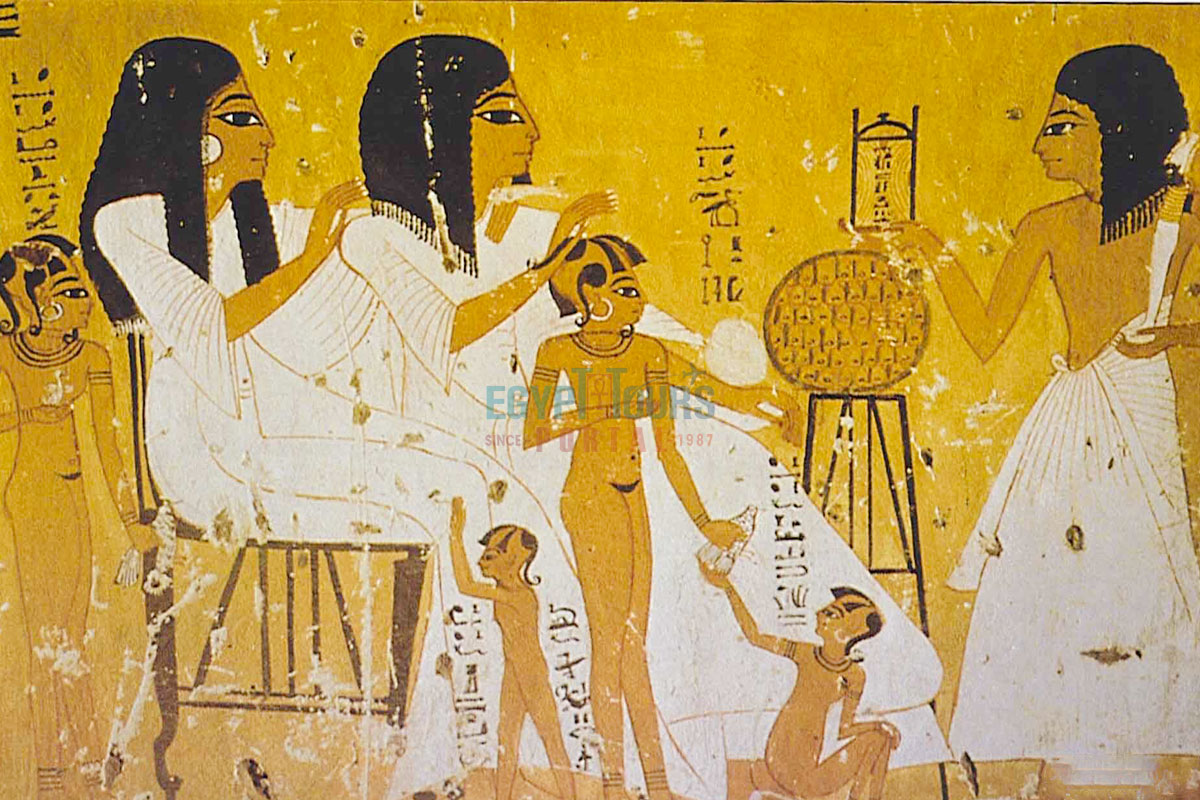
Surviving the perilous early years of life dramatically improved an individual's chances of living into adulthood. Breastfeeding provided infants with immunity and reduced the risk of infections, but once weaned, many succumbed to diseases like diarrhea, intestinal parasites, and malnutrition.
Surviving past the age of 10 significantly increased life expectancy, allowing individuals to reach 30-40 years on average. Those who lived into their 40s or 50s often occupied respected societal roles, such as elders, advisors, or leaders.

Social class played a pivotal role in determining life expectancy:
Elites: Members of the elite, including priests, scribes, and officials, enjoyed better nutrition, access to medical care, and less physically taxing labor. For instance, tomb records from the 18th Dynasty (c. 1550–1292 BCE) show elites reaching their 50s or even 60s. Statues and inscriptions, such as those of Bakenkhons, the high priest of Amun, demonstrate individuals who lived into their 80s or 90s.
Commoners: Farmers, laborers, and craftsmen faced grueling physical demands, limited diets, and exposure to diseases. Skeletal remains from worker villages like Deir el-Medina reveal high rates of arthritis and malnutrition-related conditions, leading to earlier deaths, typically in their 30s or 40s.

In ancient Egypt, "old age" was a relative term, often beginning in the mid-thirties due to the physical toll of labor and the limited medical knowledge of the time. Despite this, elders were highly respected for their wisdom and experience.
Texts like The Instructions of Ptahhotep (c. 2350 BCE) emphasized the value of elders as advisors and role models. However, depictions of old age varied: some texts, like The Story of Sinuhe (c. 1900 BCE), describe the physical decline of aging, while others celebrate the longevity and strength of exceptional individuals.
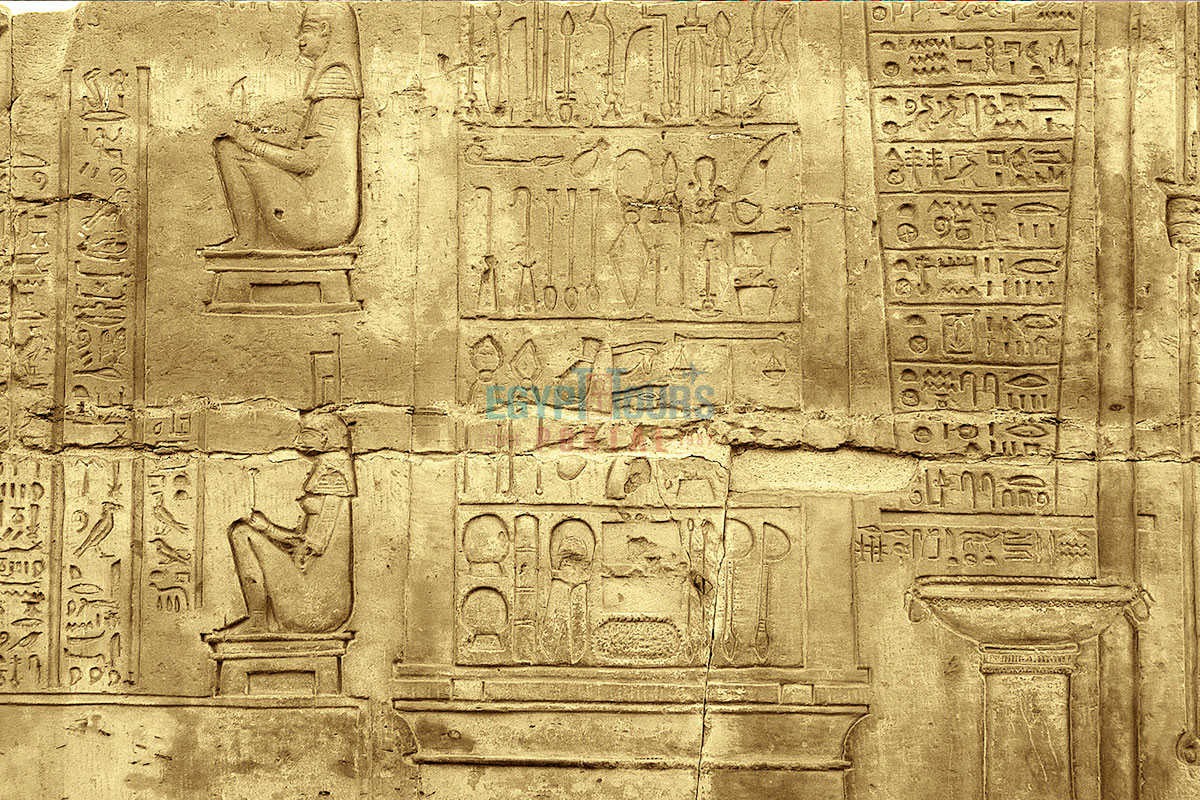
The average life expectancy was profoundly shaped by health challenges, including:
Common Illnesses: Malaria, tuberculosis, schistosomiasis, and intestinal parasites were widespread. Malnutrition and poor hygiene contributed to weakened immune systems.
Occupational Hazards: Laborers often suffer injuries and chronic pain from repetitive tasks. Studies of skeletal remains from Giza workers reveal degenerative joint diseases and spine injuries.
Medical Practices: Ancient Egyptian medicine, documented in texts like the Ebers Papyrus (c. 1550 BCE), offered herbal remedies and basic surgeries but was limited to treating chronic illnesses or infections. For example, honey and oil were used as antiseptics, but knowledge of sterilization was absent.
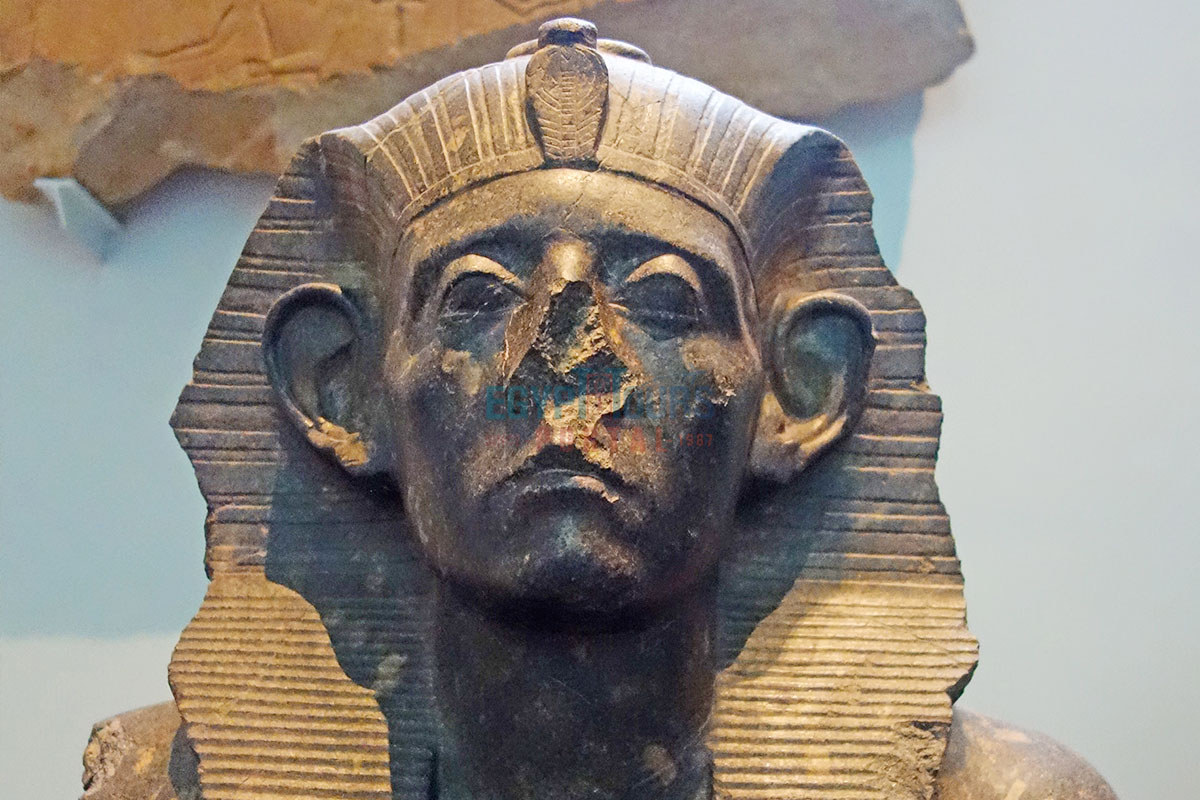
Some individuals in ancient Egypt defied the average life expectancy, particularly among the elite. For example, Ramesses II (c. 1279–1213 BCE) lived into his 90s, while the priest Bakenkhons reportedly lived to 85.
Factors contributing to their longevity included access to better diets, reduced physical labor, and consistent medical attention. These cases were exceptional, however, and not reflective of the general population.
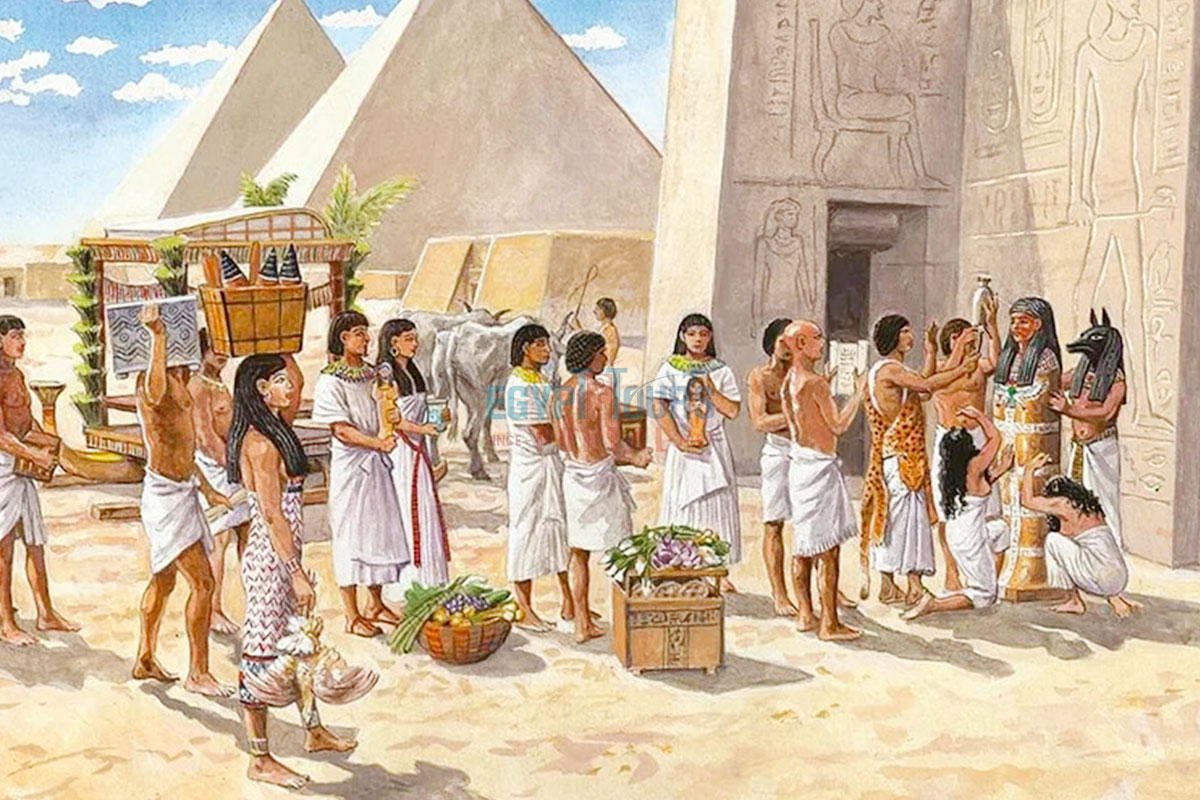
Compared to other ancient civilizations, Egypt's life expectancy was relatively typical. In the Roman Period, for instance, average life expectancy at birth was similar, but survival into adulthood improved prospects.
The comparison highlights shared challenges of high infant mortality, limited medical knowledge, and social inequalities. Egyptian elites, however, enjoyed a longer average lifespan than their counterparts in many other cultures, thanks to advanced agricultural systems and centralized governance.

The study of life expectancy in ancient Egypt offers valuable insights into health, social structures, and resource distribution. Analyzing skeletal remains, inscriptions, and census records has revealed patterns of malnutrition, occupational hazards, and disease prevalence.
For example, the Kellis 2 cemetery in the Dakhla Oasis has provided critical data on seasonal mortality rates and demographic trends. Such studies deepen our understanding of the resilience and adaptability of ancient societies.
A complex interplay of environmental, social, and health-related factors shaped life expectancy in ancient Egypt. While infant mortality and physical labor reduced average lifespans, those who survived early childhood could achieve meaningful roles in society.
Understanding these dynamics not only sheds light on ancient Egyptian civilization but also provides broader insights into human resilience and the evolution of health and social systems throughout history. Take advantage of every moment by booking one of our miraculous Egypt Vacations or a magnificent Egypt Nile Cruise.
Private 4 Days Cairo Tour Packages 4 days Cairo Egypt tour package will offer a bles...
Tour Location: Cairo – Giza...
Stunning 5 Days Cairo and Alexandria Tour Package 5 days Cairo and Alexandria tour p...
Tour Location: Cairo/Giza/Alexandria...
Exceptional 6 Days Cairo, Luxor & Aswan Tour Package 6 days Cairo, Luxor & A...
Tour Location: Cairo/Giza/Aswan/Luxor...
Amazing 7 Days Cairo and Hurghada Holiday 7 Days Cairo & Hurghada holiday will e...
Tour Location: Cairo – Giza – Hurgh...
The average life expectancy at birth was around 19 years due to high infant mortality. For those who survived childhood, males lived on average 30-34 years, and females 35-37 years.
High infant mortality rates, infectious diseases, malnutrition, and physically demanding lifestyles contributed to low life expectancy averages.
Yes, while 30-37 years was the average, some individuals, especially from the elite class, lived into their 50s or 60s due to better nutrition, healthcare, and less physical labor.
Women often had a slightly higher average life expectancy (35-37 years) than men, as men faced risks from manual labor and warfare. However, maternal mortality was a significant risk for women.
The elite had longer lifespans due to better diets, access to medical care, and less physically taxing work. Commoners, farmers, and laborers had shorter lifespans due to harsh working conditions and limited resources.
Causes included infectious diseases, malnutrition, injuries, and complications from childbirth. Poor sanitation and limited medical knowledge also played a role.
The Nile provided fertile soil and water, supporting agriculture and food supplies. However, waterborne diseases like bilharzia (schistosomiasis) impacted health.
Old age was relative; individuals in their mid-30s were often considered elderly due to the low average lifespan.
Elders were often respected for their wisdom and experience and transitioned to advisory or less physically demanding roles, particularly in administrative or priestly positions.
Ancient Egyptian physicians provided treatments using herbs, surgeries, and remedies, but medical knowledge was limited, and chronic illnesses or severe injuries were often fatal.
Data comes from skeletal remains, tomb inscriptions, and historical texts documenting deaths, ages, and causes.
Similar to other ancient societies, life expectancy was low due to common challenges like high infant mortality and lack of advanced medical care.
Physically demanding jobs like farming, construction, and quarrying led to injuries, chronic pain, and shorter lifespans among laborers.
Yes, priests, scribes, and nobles often lived longer due to their less strenuous lifestyles and better access to food and healthcare.
The diet of bread, beer, fruits, and vegetables supported survival, but malnutrition and dental issues from gritty bread often shortened lifespans.
The entire country of Egypt deserve to be explored with its every heavenly detail but there are places that must be seen before any other such as the breathtaking Hurghada's red sea, The wonders of Cairo the pyramids of Giza, the great sphinx, the Egyptian Museum, Khan El Khalili Bazaar, the wonders of Luxor like Valley of the Kings, Karnak & Hatshepsut temple and the wonders of Aswan such as Abu Simbel temples, Philea temple, Unfinished obelisk and The Wonders of Alexandria like Qaitbat Citadel, Pompey's Pillar and Alexandria Library. Read more about the best places to visit in Egypt.
If you want to apply for a Visa On Arrival that lasts for 30 days then you should be one of the eligible countries, have a valid passport with at least 6 months remaining and pay 25$ USD in cash, as for the E-Visa for 30 day you should have a valid passport for at least 8 months, complete the online application, pay the e-visa fee then print the e-visa to later be presented to the airport border guard. You could also be one of the lucky ones who can obtain a free visa for 90 days. Read more about Egypt travel visa.
Egypt has a variety of delicious cuisines but we recommend “Ful & Ta’meya (Fava Beans and Falafel)”, Mulukhiya, “Koshary”, a traditional Egyptian pasta dish, and Kebab & Kofta, the Egyptian traditional meat dish.
The best time to travel to Egypt is during the winter from September to April as the climate becomes a little tropical accompanied by a magical atmosphere of warm weather with a winter breeze. You will be notified in the week of your trip if the Climate is unsafe and if any changes have been made.
You should pack everything you could ever need in a small bag so you could move easily between your destinations.
We have been creating the finest vacations for more than 20 years around the most majestic destinations in Egypt. Our staff consists of the best operators, guides and drivers who dedicate all of their time & effort to make you have the perfect vacation. All of our tours are customized by Travel, Financial & Time consultants to fit your every possible need during your vacation. It doesn't go without saying that your safety and comfort are our main priority and all of our resources will be directed to provide the finest atmosphere until you return home.
You will feel safe in Egypt as the current atmosphere of the country is quite peaceful after the government took powerful measures like restructuring the entire tourist police to include all the important and tourist attractions in Egypt. Read more about is it safe to travel to Egypt.
Wear whatever feels right and comfortable. It is advised to wear something light and comfortable footwear like a closed-toe shoe to sustain the terrain of Egypt. Put on sun block during your time in Egypt in the summer to protect yourself from the sun.
The best activity is by far boarding a Nile Cruise between Luxor and Aswan or Vise Versa. Witness the beauty of Egypt from a hot balloon or a plane and try all the delicious Egyptian cuisines and drinks plus shopping in old Cairo. Explore the allure and wonders of the red sea in the magical city resorts of Egypt like Hurghada and many more by diving and snorkeling in the marine life or Hurghada. Behold the mesmerizing western desert by a safari trip under the heavenly Egyptian skies.
There are a lot of public holidays in Egypt too many to count either religious or nation, the most important festivals are the holy month of Ramadan which ends with Eid Al Fitr, Christmas and new years eve. Read more about festivals & publich holidays in Egypt.
Egypt is considered to be one of the most liberal Islamic countries but it has become a little bit conservative in the last couple of decades so it is advised to avoid showing your chest, shoulders or legs below the knees.
Arabic is the official language and Most Egyptians, who live in the cities, speak or understand English or at least some English words or phrases. Fewer Egyptians can speak French, Italian, Spanish, and German. Professional tour guides, who work in the tourism sector, are equipped to handle visitors who cannot speak Arabic and they will speak enough English and other languages to fulfill the needs of all our clients.
The fastest way is a car, of course, a taxi. If you are in Cairo ride a white taxi to move faster or you could board the fastest way of transportation in Egypt metro if the roads are in rush hour.
The temperature in Egypt ranges from 37c to 14 c. Summer in Egypt is somehow hot but sometimes it becomes cold at night and winter is cool and mild. The average of low temperatures vary from 9.5 °C in the wintertime to 23 °C in the summertime and the average high temperatures vary from 17 °C in the wintertime to 32 °C in the summertime. The temperature is moderate all along the coasts.
It is the home of everything a traveler might be looking for from amazing historical sites dating to more than 4000 years to enchanting city resorts & beaches. You will live the vacation you deserve as Egypt has everything you could possibly imagine.









